Hanging in There
Hanging Hills Brewing Company, Hartford
Multiple Visits
Hanging Hills closed in March 2020.
Sometimes I am forced to write up a brewery after it closes. And that’s never fun. Like right now. This isn’t fun. Wait… lemme go grab a fresh Hanging Hills beer out of the fridge to lighten the mood a bit.
Ah. There. That’s better. Wait. What?
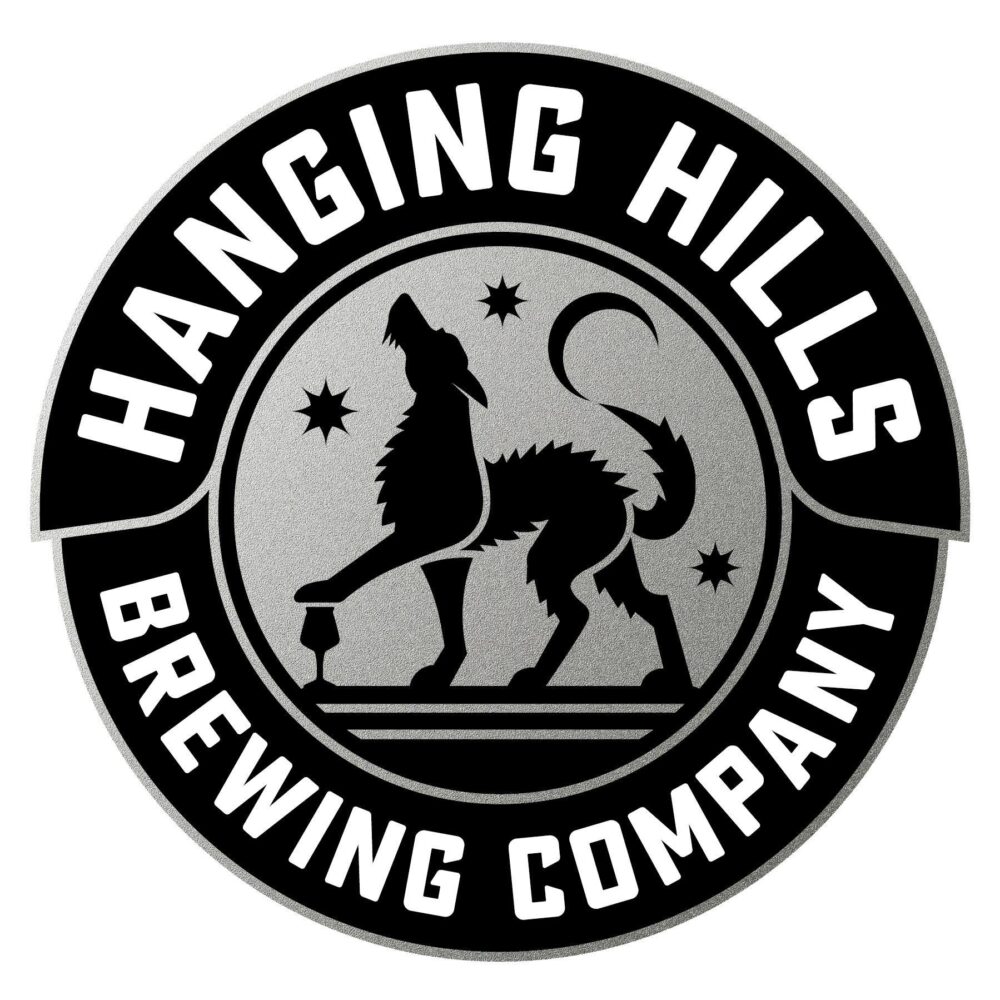
2022 branding
Yeah. There’s a reason I’ve held off on writing the Saga of Hanging Hills of the South End of The Capital City: They closed right when the pandemic took its first hold on America (so who knew if they were really closed) and then there were rumors that they were actually rebranding (turned out to be true) and moving to a new location in Hartford (which was the plan for a very short while) and all the while their core beers were still being contract brewed and distributed (so who knew what the deal was?) – you know what? I knew.
I kept in touch with Joe Ploof, one of the trio of original owners who made this place what it was. Joe is now the lone wolf keeping it going through contract brewing in 2022. Hanging Hills was all done as a brick and mortar brewery as of March 2020. And yes, after a stumble contracting at another brewery, the brand is alive and well through East Rock Brewing in New Haven.
But I don’t write about contract labels. I write about physical breweries. So let’s do it.
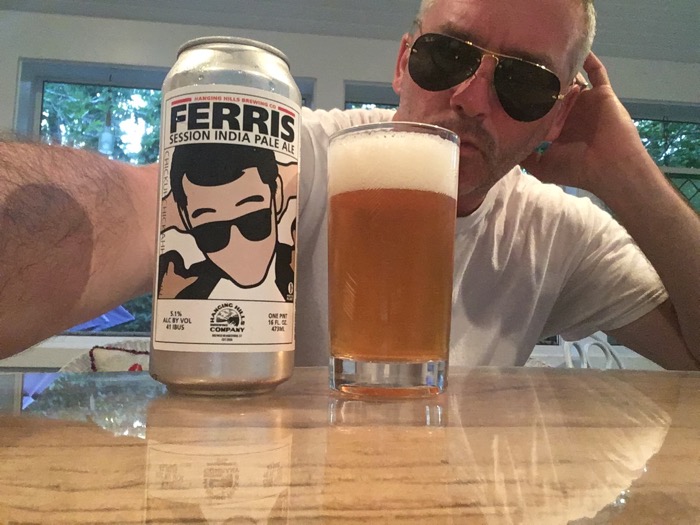
Whale Works Brewing (2013-2015)
I’m only starting here because there needs to be an explanation as to why the Hanging Hills of Meriden were the focus of a brewery located among the chop shops of Hartford’s South end. Hanging Hills didn’t start off planning to be in Hartford. In fact, they didn’t start off as “Hanging Hills”.
They began as Whale Works Brewing and were to be located in Meriden (or somewhere down there). However, Whale Works lost a trademark battle over the word ‘Whale’ with a brewery located smack dab in the middle of the country in St. Louis. You know, in the event that a large cetacean should make its way up the Mississippi, this brewery in the Heartland really wanted their whale identity.
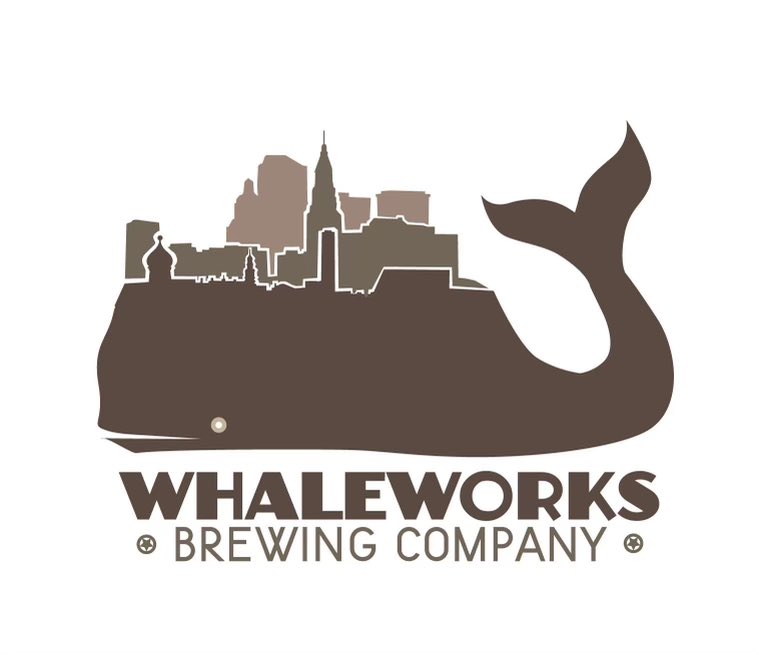
So they became Hanging Hills and wound up on Ledyard Street in Hartford. “They” were Scott Stauffer, an Aetna alum that I knew in passing from my days there, Brian Cox, a brewer from the south, and Joe Ploof. Oh, Joe Ploof. Good ol’ Joe Ploof.
I like Joe. I really like Joe. Joe has always been the face and voice of the brewery, for better or worse. As you’ll read, it was for the worse on occasion. But in spite of that, Joe’s a smart guy who is certainly a top three “Connecticut Brewing World podcast guest.”
Hanging Hills Brewing (2016-2020)
The three guys from different places with different backgrounds got their little brewery going and hit the ground running. They’d done a Kickstarter back when that type of thing still made a modicum of sense. Brian had been brewing in Kentucky or some such, Scott was the numbers guy behind the scenes, and Joe was a former teacher who earned his brewing chops in Portland, Oregon, Harpoon Brewery, Cambridge House Brew Pub, and Back East Brewing.
(Since Joe’s not shy about it, I’ll say it: Joe and Steve at Cambridge House did not get along. But Joe and Tony from Back East did. Just throwing that out there because that’s the type of insider stuff I used to know about everyone everywhere. Memories…)

Hanging Hills was the 18th or so brewery to open in Connecticut… right around when Connecticut Brewery Madness started to happen. And what followed, friends, is a litany of missteps. Breweries can survive one thing or another, but Hanging Hills seemed to make a bunch of bad decisions coated with a lot of bad luck.
Their timing was unfortunate. Sure, they got in the game pretty early but by mid-2017 we had like 50 breweries. Competition was getting fierce. Distribution became war. Onsite sales became paramount for small to midsize (10 bbl) breweries like Hanging Hills. Their size was at a bad midpoint; too much for just taproom production, not enough for distribution.
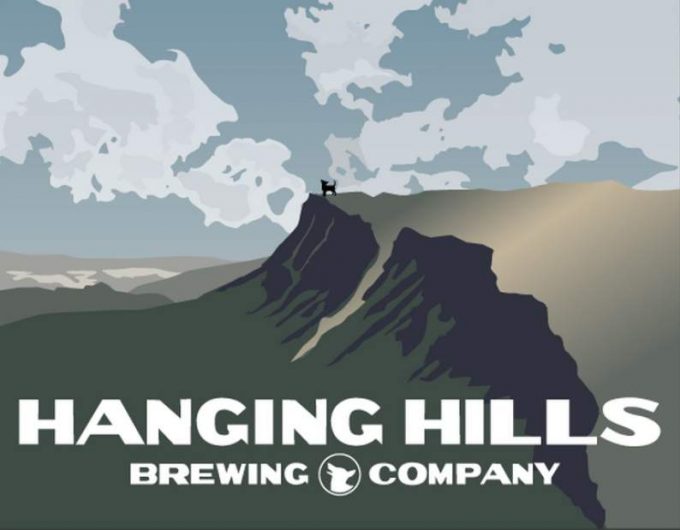
There was a line out the door the weekend they opened. High-fives all around. But location matters and let’s be honest, the section of Hartford they were in wasn’t ideal. People were not going to go out of their way to navigate the industrial wasteland of this particular area of the South end unless they were looking to offload a bunch of stolen catalytic converters.
Not big enough… not small enough… not the best location… but they seemed to be doing alright. And for old heads like me, they seemed to be doing better than alright.
You see, Hanging Hills brewed classic styles. Ambers, bocks, dunkels, stouts, actual pale ales, lagers… and keep in mind that in 2017, everyone was solidly on board the IPA train. NEIPA, DIPA, TIPA, fruity, oatey, everything IPAs.
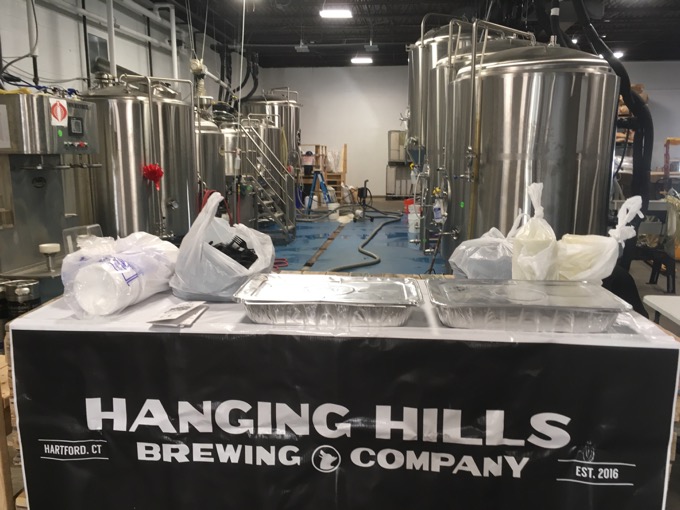
Hanging Hills said no. You know who else did that? Olde Burnside Brewing. You know what happened to Olde Burnside Brewing? They closed.
Look, I get it. Brewers generally hate gimmicks and trends and sloppily made trendy IPAs. But brewers also like to make a living. Hanging hills refused to make a NEIPA. Refused to release anything with any haziness. They were proud of their brewing chops and that fad was going to pass any day now…
(Spoiler alert: It’s still going strong five years later. Hanging Hills is not.)
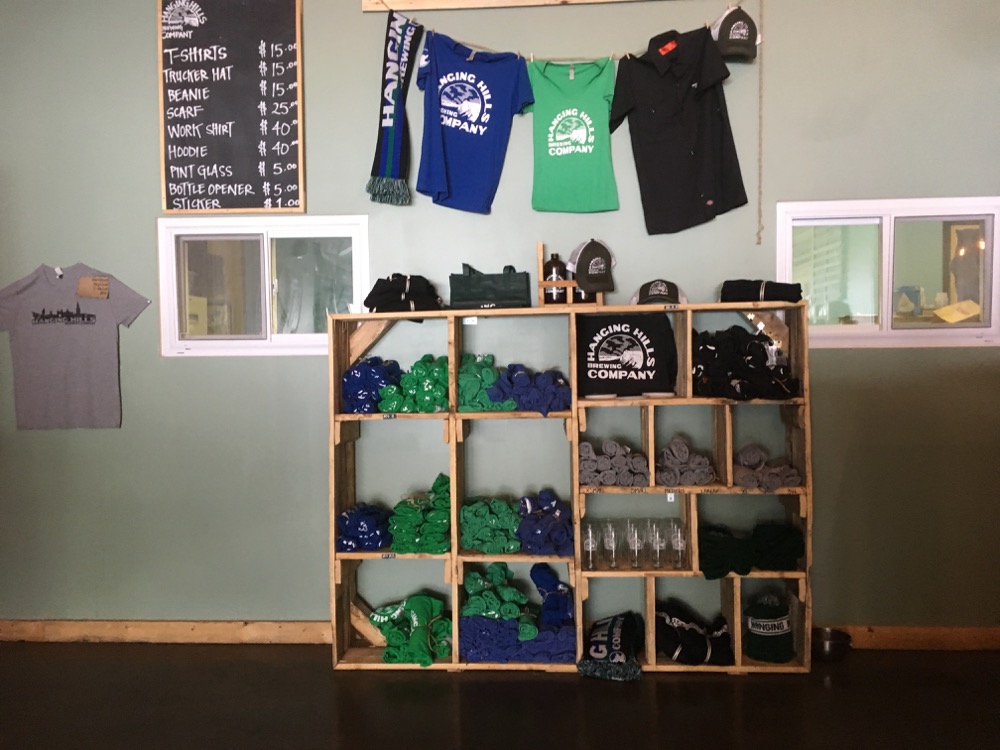
Joe Ploof has a whole hypothesis about the perfect storm that doomed his brewery from the start. And I’ll grant him much of it. The number of Connecticut breweries doubled right after they opened. People stopped chasing beers and settled into enjoying their local spots rather than driving all over the place. Proximity became the main factor in patronizing a brewery almost overnight. I’ll grant Joe all of that except… there are other small breweries in not-ideal locations still plugging along.
(Not fair, but Phantom Brewing is a mile away, smaller, with no distribution and is somehow still plugging along in 2022. Hartford has proven successful also for Hog River and City Steam Brewing for many years. Each business model is different and each location is surprisingly very different, but still. And I’d be remiss if I didn’t mention Joe is a huge champion of Hartford. Massive. He doesn’t blame anything on the city at all.)
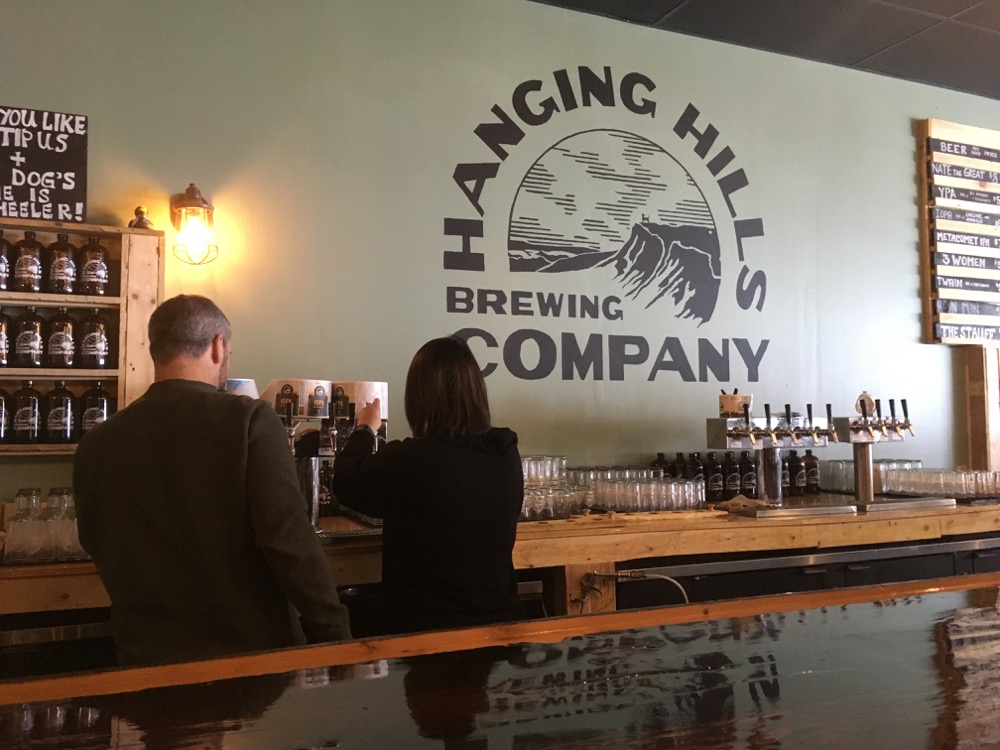
Hanging Hills made some odd beers early on – beers they saw as their flagships. The stupidly named IOPA and YPA variants. People wanted IPAs. People, including me, didn’t want to figure out what an IOPA or a YPA is. After a while, the brewery figured that out and started making “normal” beers like Metacomet IPA and the like.
Despite the adherence to old school styles, poor branding, poor location, and not giving the people what they wanted, the brewery had a successful first year. They began making hazy ales and brought in the mobile canning in their second year.
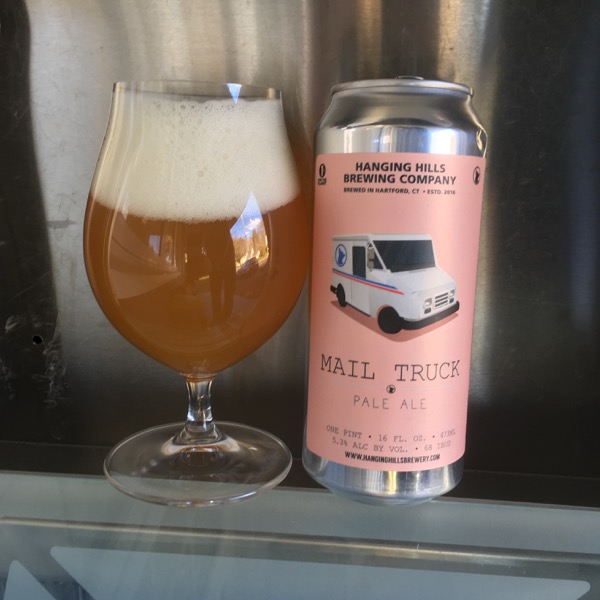
Grumman, the multi-billion dollar defense contractor who also makes mail trucks, issues Hanging Hills a Cease and Desist for this can.
The brewery, which was always mostly Joe, often seemed successful and fun on social media; things like their foray into creating a beer garden at Bushnell Park near the carousel. They had a little standalone booth at Hartford Yardgoats games. They did charitable relief events. The brewed a beer with a local Hispanic radio deejay to penetrate and attract that market in a very real way. And they had bands. Really cool, different, underground, eclectic bands. Bands you and I have never heard of, but impressive bands all the same. It all seemed to be working.
Hell, they had label/beer/branding partnerships with The Hold Steady, The Drive-By Truckers, REI! Great!
But behind the scenes, it wasn’t working financially. And here’s the thing. Joe has laid it all out on a few different podcasts and he basically says that Hanging Hills’ situation isn’t unique. That is, there simply must be tons of breweries in Connecticut and beyond that are losing money month over month. He’s done the math and he knows what he’s talking about.
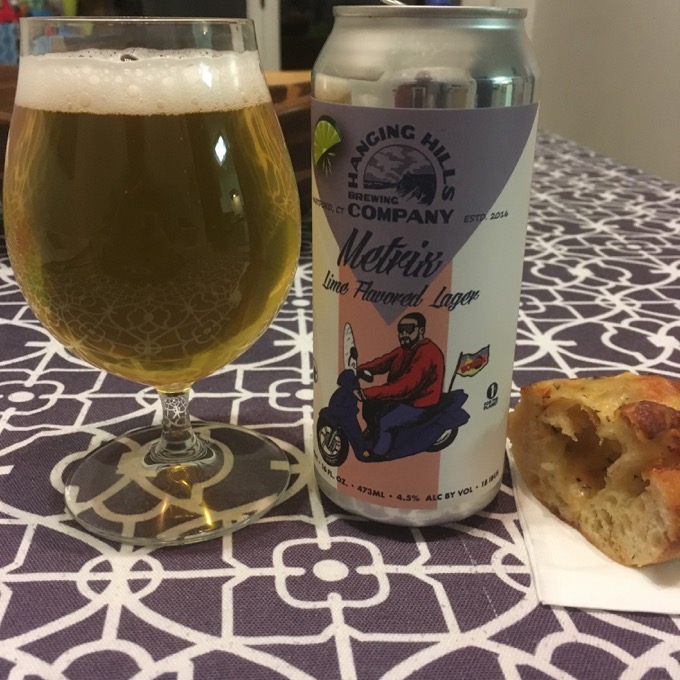
Metrix, a lager made with La Bomba radio station
With rising costs, and distribution issues and competition and on and on, he’s left scratching his head. But maybe he’s wrong? Maybe that’s sour grapes?
But our story is still back in early 2020. A little thing called COVID was percolating in the news, but hadn’t quite hit yet. Behind the scenes the triumvirate at the head of Hanging Hills was not getting along very well. Scott was saying there was no way they were going to get out of the red. Brian and Joe were constantly at odds. And then… the Tweet.
Ah, the Tweet. Oh, Joe. The Tweet. Joe had always run the brewery’s social media and had always run it poorly. His politics more or less align with mine, but I’m Steve Wood, not a business. Joe would sometimes argue with people through the business handle and write thing that would make me cringe. But then during the… oh I don’t remember the whatever-they-were protests in Portland and Seattle happened and one of those people who love attention got hit with a milkshake and “Hanging Hills” said he’d throw a beer at his head if he came into their brewery.

And you know how the online rightwing troll army is. They doxxed Joe and went to work on destroying the brewery online. It was brutal. Brian left the brewery and Hartford altogether, and hasn’t spoken to Joe in years. Two months later, the COVID shut-downs. Scott was out. The brewery was dead.
Just like that. It wasn’t The Tweet or the pandemic or the location or the weird mid-size or the poor choices three years prior. No, it was a combination; a snowball effect of bad luck and bad decisioning. But in March of 2020, Hanging Hills announced they were all done – right after COVID forced all similar businesses to close or change drastically.
Hanging Hills Brewing (2020-2022 and beyond?)
There were rumblings that Joe was going to take his brewery several blocks north and reopen in the brand new (at the time) Parkville Market. Joe wanted to keep Hanging Hills alive… despite the social media experience, despite the red tape and being in the red. Joe hates Untappd (“like having your PhD thesis graded by a kindergartner”). Joe doesn’t like the “Hanging Hills” name, but he’s stuck with it. Joe prefers perfect lagers and proper stouts, not the candied hazy beers the market demands.
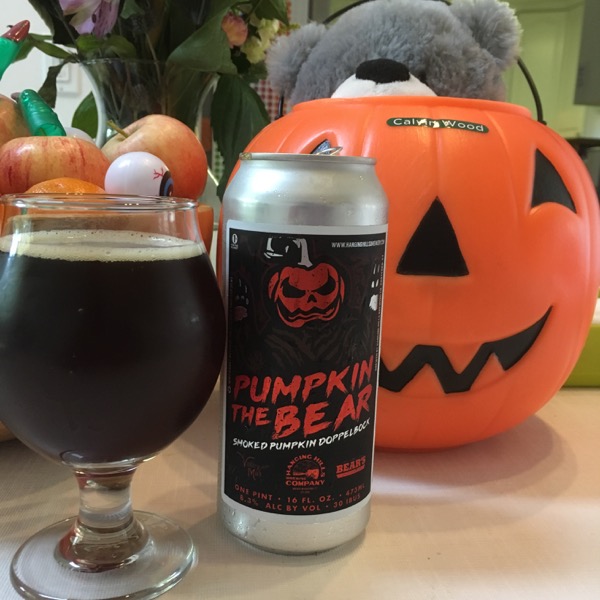
And yet, Joe loves the brewing business. So he regrouped and regathered. Rebranded and reconfigured. Hanging Hills was contract brewed at Thimble Island Brewing for a year or so in 2020-21, but that didn’t work out for a few reasons – the biggest being that Joe thought the beer wasn’t very good. So he picked up, regrouped and rethought and wound up at East Rock Brewing in New Haven.
The clouds parted, a rainbow shone, and all has been well. East Rock brews top quality beer, and excels in the lagers Joe prefers. But his classic IPAs are now what he wants them to be. His Pumpkin and the Bear beer – the only beer with “pumpkin” in the name that I like – is back and it’s great. Hills Pils is now brewed with only pilsner malt and only Saphir hops and it’s now naturally carbonated and it’s wonderful.

Hanging Hills doesn’t make milkshake IPAs, but Andy Ngo got pelted by a milkshake by Antifa. It made him a rightwing martyr/star.
Joe seems happy now contracting at East Rock. Oh, sure, he still dreams of opening his own little “dive bar” brewery, but I’m not sure that’s ever going to happen. (The brewery’s website says that’s still the plan as of August 2022.)
In the beginning, the beer wasn’t very good. Then it was pretty good, then for a while there it was really very good. Then the brewery closed and the first contracted beer wasn’t good. Then they moved the contract to East Rock and now it’s really, really good; probably the best it’s ever been. Regardless of your politics, Joe Ploof is a good guy. A passionate man who believes what he believes in and believes it’s worth fighting for – including his little Hanging Hills Brewing Company.
To be honest, I’m not sure how much the physical brewery is missed from the consumer standpoint, but I do know that if the beers disappear, a lot of people will be bummed. Good luck, Hanging Hills, wherever the road may lead you.
Just hire someone to run your social media and delete Untappd from your life.
A lot of the “insider info” was gathered from the excellent How NOT To Start a Damn Brewery Podcast.
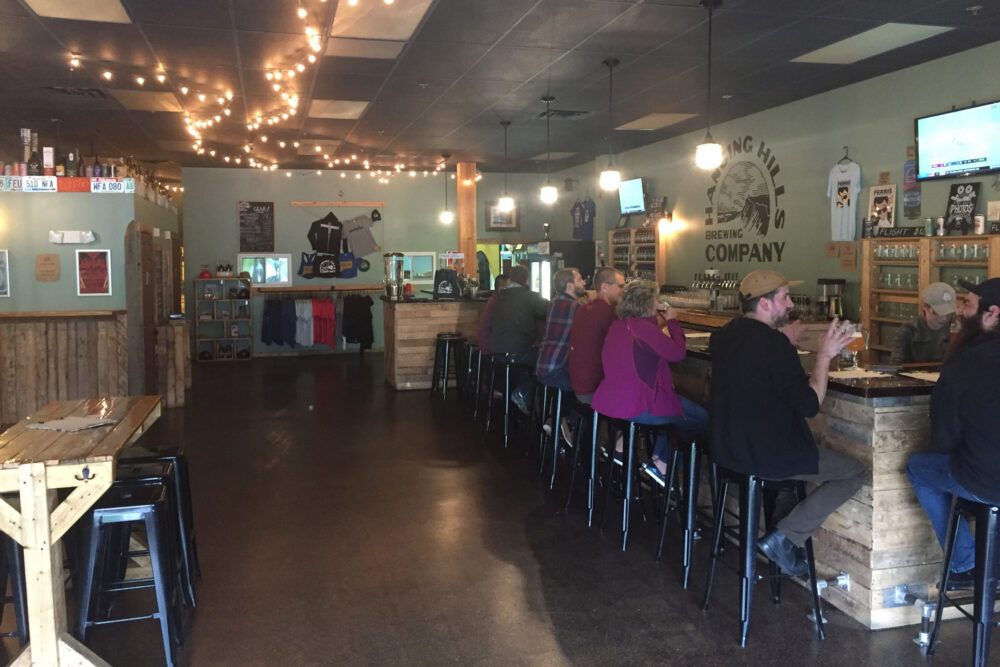
![]()
Hanging Hills Brewing Company
CTMQ’s page on CT Breweries and Brewpubs

 Mr. Z says
Mr. Z says
February 18, 2025 at 5:09 pmI’d been in the retail sector for a LONG time dealing with the public as customers. One thing you learn is to have a thick skin with customers. Some people just plain SUCK to put it mildly and in SERVING them, you would be best advised to ignore their inane behavior UNTIL it crosses a line into abuse or physical harm. I could tell HORROR stories as I’m sure a lot of person serving the public could.
From a customer perspective, I try to be pleasant and rational because who wants to be the WORST customer when the other side is at their job? Well, plenty of total assholes DO.
One way to sour a customer experience is to proselytize about POLITICS/RELIGION or MUSIC to your customers. Hell, I don’t care if I AGREE with you, I’m not a customer that goes for a lecture when it isn’t solicited or called for. Hell, even Michael Jordan said something to the effect that “White People buy shoes too”. Politicizing a business is BULLSHIT.
I got that BULLSHIT in Hanging Hills before that tweet happened. I kept my opinions private and left not letting them know I wouldn’t be back. Made me feel a little like it MAY have felt in the deep south in the late 50’s and my skin was a too dark for the locals. Hell, that DID happen to me in the 1990’s. Still Klansman down there, I found.
Keep your politics to yourself if you want to serve the public. If you WANT to partner with ANTIFA, BLM, The KLAN, expect the consequences. Plenty of Left-Leaning business owners have been downright hostile to anyone APPEARING to be in support of the other side, the wrong color, religion, clothing…..money is only GREEN but you’ll see less when you go all politic.